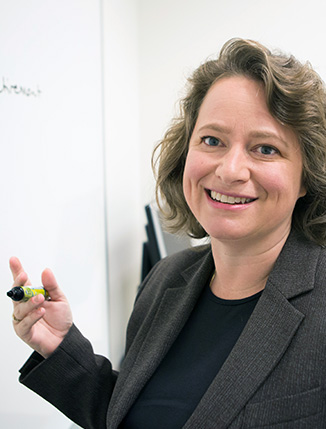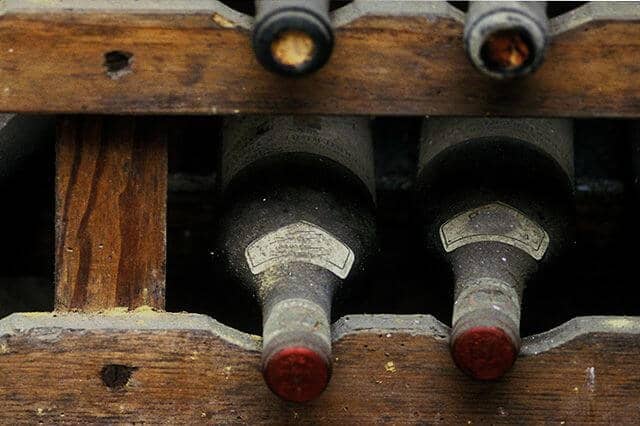Much of life can seem like an endless cage match in which you’re pitted against the forces of delayed gratification. Sticking to a diet or a gym regimen is hard when the payoff may not be seen or felt for months (or for decades, in a healthier later-life you), while tonight there’s tiramisu on the dessert menu and a Netflix binge awaiting if you park yourself on the couch.
The difficulty of fighting the urge to consume in the here and now rather than wait is a well-trod area of research in academia.

In work that began with her Ph.D. thesis nearly 15 years ago, UCLA Anderson’s Suzanne B. Shu has been exploring an opposite behavioral tic: Once we slap a “special” label on something, we do a 180-degree attitude shift and practice too much delayed gratification.
Research in the 1980s and ’90s suggested that people believe consuming something indulgent will be better enjoyed if it is saved for a special occasion. The more special the item, the more we’ll hold out for just the right moment to enjoy it.
Sounds benign, right? In an article published in the Journal of Marketing Behavior, Shu and the University of Pennsylvania’s Marissa Sharif make a case that the pursuit of the perfect time to enjoy an indulgence is the enemy of actually enjoying a good experience.
We convince ourselves that the best — the perfect — moment to indulge must be in the future, where our imaginations can conjure up all sorts of notions of an ideal time and setting to enjoy ourselves. So, rather than enjoy the bottle of wine or a free concert pass now, we tuck them away and wait for that imagined perfect moment.
And wait.
Shu and Sharif show that this is not some sneaky-smart behavioral tic that builds the anticipation to a greater savor point or payoff. Rather, the tendency to wait for the “perfect” occasion to consume or use a valued possession can backfire.
The chocolates sit unopened until they become unappealing. Or we choose to wait to see if our favorite band will be coming to town, foregoing using our free concert pass on the multiple acts that actually came to town that we would still have enjoyed. And then we end up having to use the soon-to-expire free pass on a band we really don’t connect to.
Ever found yourself hustling to use reward points or frequent flyer miles before they expire? Have unused gift cards stuffed in your junk drawer, or didn’t use vacation days? You’ve got some future bias issues.
Shu and Sharif find that our compulsion to wait for the perfect situation to consume indulgences, a behavior academics call occasion matching, is in part driven by the fact that we fear the regret of consuming too early and then missing out on the possibility of a better time to consume in the future. Because in the future, everything is possible.
We’re also guilty of overestimating the probability that our dream scenario will actually happen. So, we hold out for a perfect future that rarely (if ever) materializes rather than “settle” for the good (but not perfect) opportunities that are actually grabbable.
The Endless Wait
Shu and Sharif’s research provides empirical heft to what journalists Dorothy J. Gaiter and John Brecher recognized nearly two decades ago was an issue for wine enthusiasts. The couple was often fielding queries from readers of their Wall Street Journal wine tasting columns asking for advice (and perhaps some knowing permission) on when they should drink a treasured bottle of wine.
Long before “pre-commitment” became a popular corrective nudge for all sorts of behavioral biases, Gaiter and Brecher launched Open That Bottle Night in 2000. As Gaiter recently explained, OTBN is “an impetus for people to enjoy a wine they had been keeping for a special occasion that never arrived.” Pre-committing to that special annual night (the last Saturday in February, if you’re game) breaks the fever to keep holding out for a better time that may fall victim to the wine’s going bad or life’s intervening. Gaiter and Brecher have chronicled many stories of people saving a special bottle to enjoy with a loved one who then dies before that moment ever happens.
Shu and Sharif’s research first took a spin through a few examples of how our grip tightens on items the more we view them as special.
A small pilot test found that members of a grad-school wine club typically spent $16 on a bottle of wine, and opened about two bottles per week. But “special” bottles, with an average price tag of $93, were held onto for an average of two years.
The same dynamic was in play for more than three dozen golfers who had a box of high-end golf balls. On average, the duffers said it took them a year to use those balls, compared to running through a new supply of regular balls every four to six months.
Shu and Sharif next turned to a box of chocolates to explore the intersection of the perceived specialness we attach to an item, and our desire to match its consumption to a special occasion.
In a lab experiment, 50 college students were given a hypothetical box of chocolates, and each student was told one specific origin story for their box: for some it came from the grocery store (no big deal) for others the frame was special (purchased on a memorable trip or at a fancy boutique). Shu and Sharif asked the study participants to rate on a scale of 1 to 9 the likelihood, across six different scenarios, they would dive into their box of chocolates — ranging from the everyday (sharing with a roommate or having as a snack) to the big-moment (one’s own birthday, a romantic date). Participants signaled an intention to wait to enjoy the chocolates on a big-moment date or birthday.
Shu and Sharif point out that the more special the origin story, the bigger the pull to wait for a special occasion.


